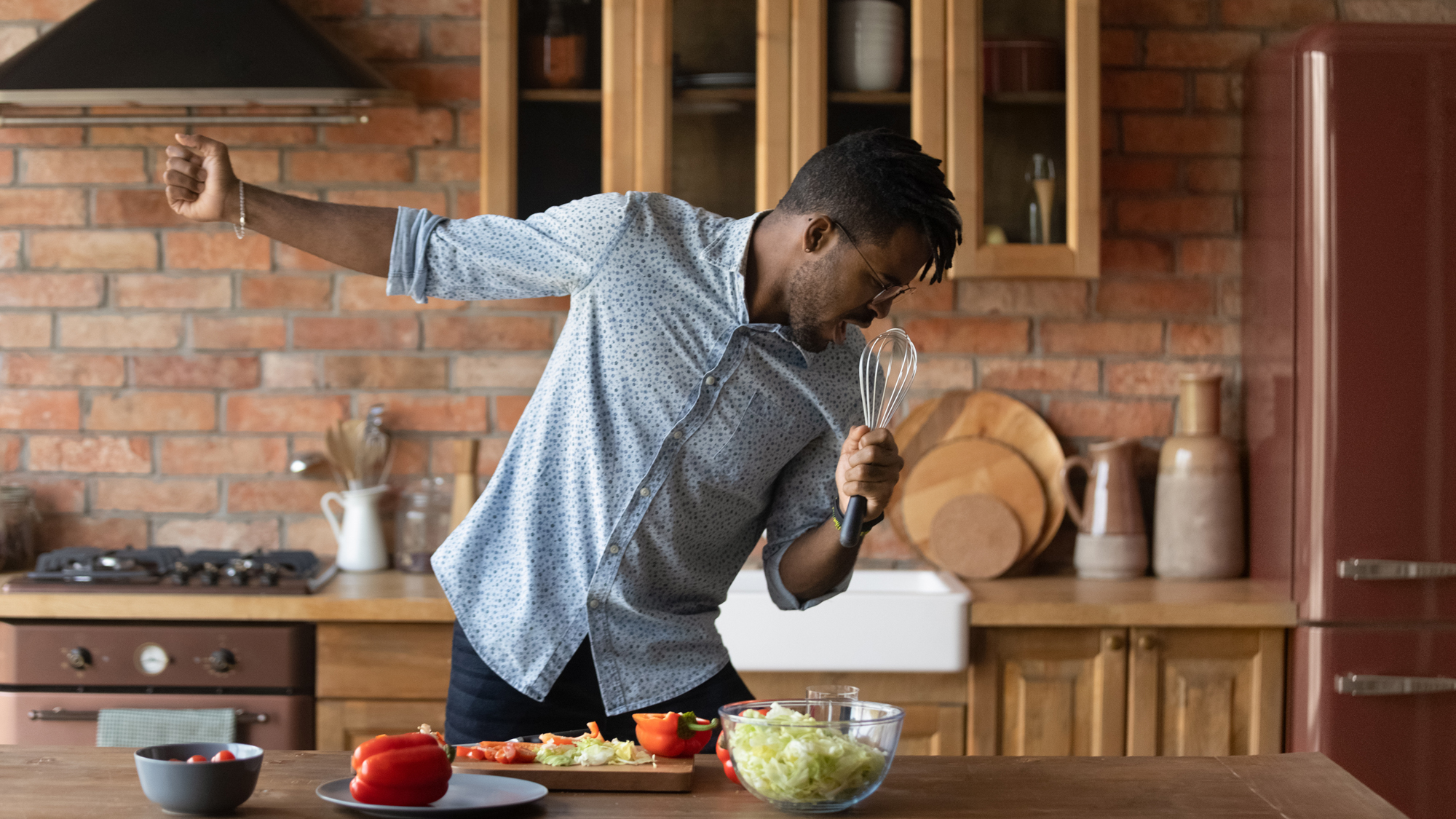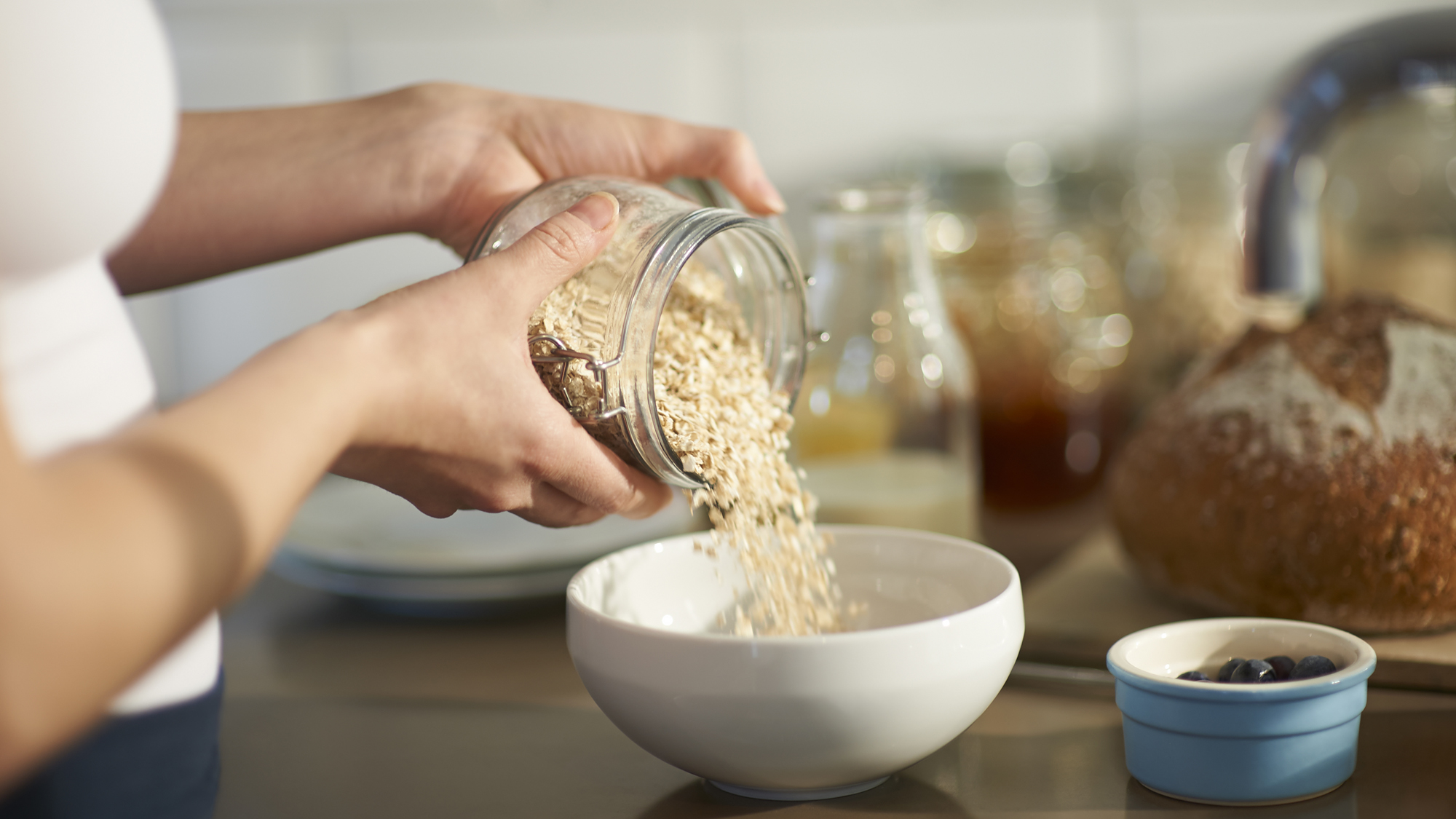Eating less meat? Here's how to get enough B vitamins and why you need them
The essential nutrients are found in several foods, including two affordable everyday ingredients


Start your week with achievable workout ideas, health tips and wellbeing advice in your inbox.
You are now subscribed
Your newsletter sign-up was successful
Whether you're opting for a plant-based diet or want to cut back on meat, it's important that you don't miss out on vital nutrients like B vitamins. Fortunately, you can keep topped up and protect the planet with two staple ingredients.
Even if you've been using the best vegan cookbooks to find accessible, delicious plant-based recipes, there are times when you'll want to be creative and make your own meals. That's when a bit of planning can go a long way to protecting your health.
According to research published by The Royal Botanic Gardens, Kew in the UK, there are two affordable, easy to access foods that can help you get your daily dose of B vitamins; oats and legumes.
Oats are readily available in most grocery stores, and you can typically find budget-friendly varieties through premium gluten-free or organic options. According to the research, oats are "important sources of thiamine (B1)."

Thiamine plays a crucial role in our bodies, but it's not always easy to stay topped up through out diets. And, if you're pregnant or breastfeeding, then you'll have lower levels too as the nutrient is transferred to your baby.
If you have a thiamine deficiency, you're at risk of cardiovascular troubles, like a fast heart rate, shortness of breath, and chronic pain. So, it's a necessary nutrient to keep your body and mind in good health.
Meanwhile, legumes—foods like peanuts, beans, chickpeas, and lentils—contain several B vitamins, including B12. Importantly, they're also culinary staples in most cuisines, making them easy to incorporate into your diet.
Start your week with achievable workout ideas, health tips and wellbeing advice in your inbox.
The Royal Botanic Gardens, Kew findings were part of an investigation into edible plant species could help tackle Vitamin B deficiencies and malnutrition worldwide. Oats and legumes were identified as options that weren't threatened by extinction.
However, the organization also found that wild Durian, a small fruit grown in Indonesia, and Baobabs from Madagascar were potentially great sources of B vitamins but are currently under threat and vulnerable, making them less viable.
What are B vitamins?
If you've ever taken a look at a Vitamin sale, you'll have seen that there are several essential vitamins, including Vitamin C and Vitamin D. These all play important but different roles in our bodies to keep us healthy and active.
Unlike Vitamin D, which we primarily get through exposure to sunlight, B vitamins usually come through our diet and the foods we eat. They're commonly found in meat, dairy, and eggs, which are all animal-derived products.
This is why anyone following a plant-based, vegetarian, or vegan diet might struggle to hit the recommended amounts. However, you can plan your meals to include foods high in these nutrients—like oats and legumes.
Why do you need B vitamins?
According to the UK's National Health Service (NHS), a lack of B vitamins, and especially B12, can cause extreme tiredness, a feeling of pins and needles, muscle weakness, and psychological problems like depression.
As B12 is mostly only available from animal sources, if you're following a vegan diet, you'll need to keep your levels topped up with foods like nutritional yeast, supplements, or fortified foods with added vitamins.
And while some people believe that you can get enough from plants alone, the Vegan Society strongly recommends that you use supplements and fortified foods to avoid deficiencies.
If you are concerned that you're not getting everything you need from your diet, it's always worth talking things over with a medical professional, especially as everyone's needs are different.
Likewise, your body needs certain nutrients at specific times of life. That's why the best vitamins for women over 50 are ideal as you get into your older years to support your overall health and wellbeing.

James is a London-based journalist and Fitness Editor at Fit&Well. He has over five years experience in fitness tech, including time spent as the Buyer’s Guide Editor and Staff Writer at technology publication MakeUseOf. In 2014 he was diagnosed with a chronic health condition, which spurred his interest in health, fitness, and lifestyle management.
In the years since, he has become a devoted meditator, experimented with workout styles and exercises, and used various gadgets to monitor his health. In recent times, James has been absorbed by the intersection between mental health, fitness, sustainability, and environmentalism. When not concerning himself with health and technology, James can be found excitedly checking out each week’s New Music Friday releases.